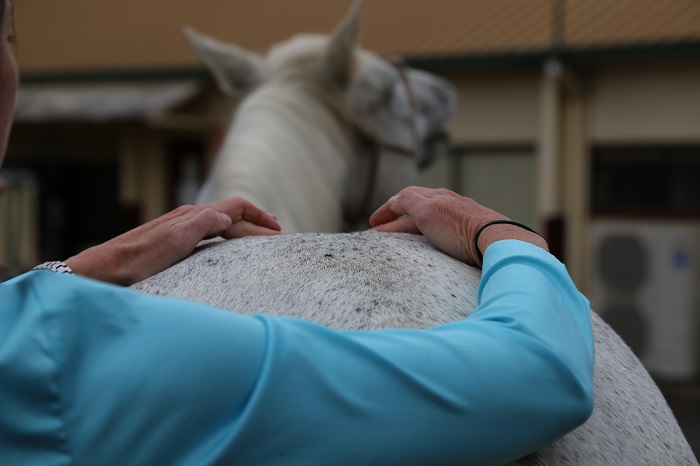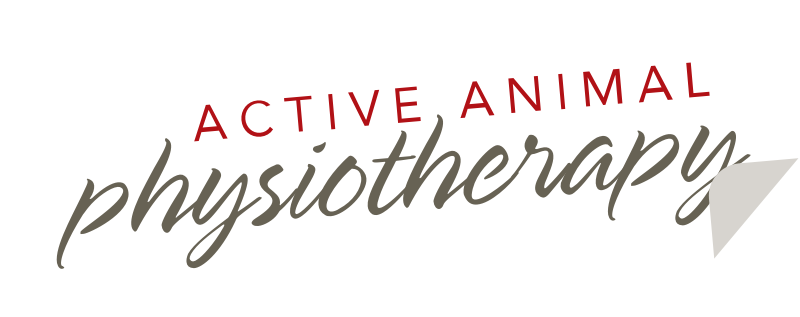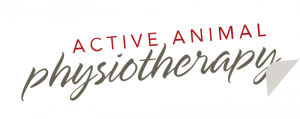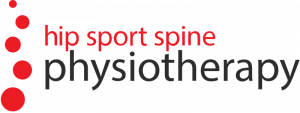
-

Stretching Back, neck and sacroiliac pain
- Tendon and muscle injury
- Arthritis
- Exercise and Performance
- Nerve injuries
- Rehabilitation after injury or surgery
The injured horse
The horse is an elite athlete, and should be given the chance to reach the optimal level of performance. Physiotherapy helps to achieve and maintain performance in the equine athlete.
Horses develop back and neck pain and other musculoskeletal injuries due to the nature of their work. Specific musculoskeletal injuries include tendon and soft tissue injuries from day-to-day work and overtraining, as well as stress fractures, fractures and nerve injuries, from falls and accidents.
Following initial veterinary diagnosis, in the acute phase of injury, physiotherapy helps to reduce pain, swelling and inflammation, and begins to restore the horse’s movement. Physiotherapists can then provide full and ongoing rehabilitation to aim to restore the equine athlete’s performance.
Back Pain

Back, neck and sacroiliac pain are common in the performance and recreational horse. The physiotherapists use manipulation, and other spinal mobilisation techniques to restore motion and reduce pain arising from the vertebral column and sacroiliac joint in the horse. Exercises are commonly prescribed, to help maintain the function in the spine.
After surgery
Physiotherapy intervention following equine arthroscopic joint surgery, surgical repair of tendons

and fractures, and abdominal surgery (including colic) can enhance the horse’s recovery. The correct rehabilitation ensures optimal return to function.
Prevention of injury
Early detection of movement abnormalities, which may be
indicative of orthopaedic conditions, muscle imbalances or other musculoskeletal problems, is important to help prevent development or worsening of
pain and loss of performance.
The physiotherapists are well qualified to assess movement

disorders, and communicate closely with veterinarians who will diagnose if there is an underlying condition.
The aged horse and arthritic joints
Physiotherapy can help to relieve aches, pain and stiffness associated with arthritis (degenerative joint disease) and the ageing process. Many horses develop degenerative joint disease early in life due to growth rates, congenital problems, previous injury and sometimes the nature of the work they perform. Performance horses can still remain competitive with arthritic changes, providing they are managed with veterinary care and with physiotherapy. Physiotherapy can help to prolong a horse’s years of activity, or simply provide a better quality of life.


